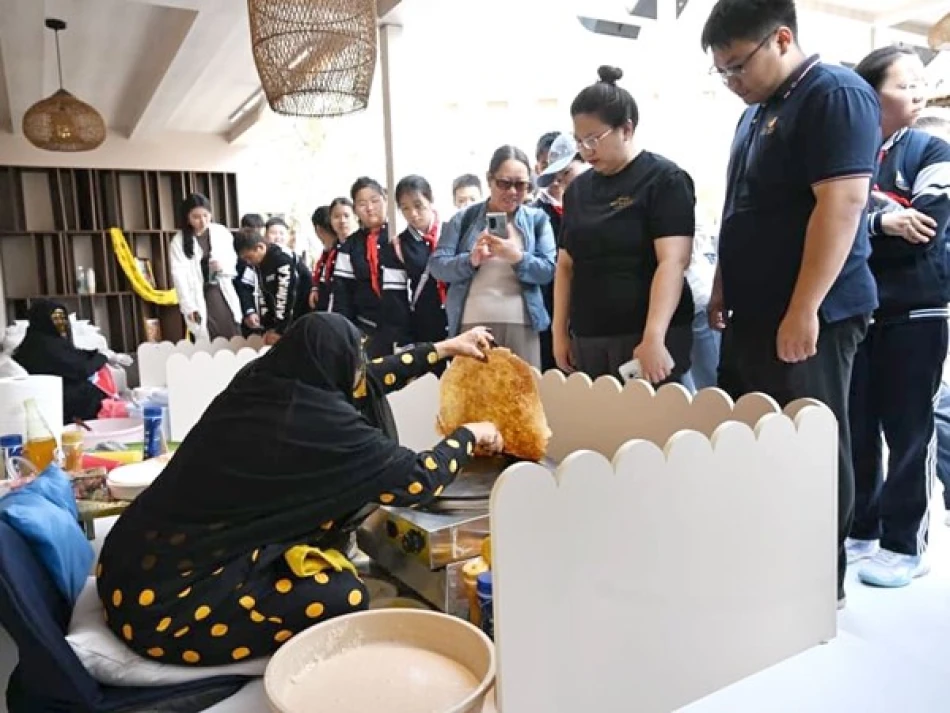
Discover the Captivating Flavors of Emirati Cuisine Delighting Visitors in Beijing
UAE Brings Traditional Hospitality to China's Great Wall Marathon
The UAE showcased its rich culinary heritage at the Great Wall of China, serving traditional Emirati dishes to international marathon participants. The "Emirati House" food pavilion at the Zayed Charity Race and Huairao Great Wall Marathon drew crowds eager to taste authentic Middle Eastern flavors, marking another step in the UAE's cultural diplomacy efforts across Asia.
Traditional Flavors Meet Modern Diplomacy
The Emirati food corner served classic dishes that tell the story of desert hospitality. Visitors sampled harees (a wheat and meat porridge), thareed (a bread and meat stew), and luqaimat (sweet dumplings), alongside Arabic coffee and dates.
These aren't just foods - they're cultural ambassadors. Each dish carries centuries of Bedouin tradition, from the communal sharing of thareed to the welcoming ritual of serving dates and coffee to guests.
Chinese Visitors Embrace New Tastes
Chinese marathon participants and spectators responded with genuine curiosity. Many noted how different the flavors were from Asian cuisine, particularly praising the presentation style that reflected authentic Emirati hospitality.
Parents mentioned how the experience sparked their children's interest in Emirati customs and social traditions. This kind of grassroots cultural exchange often proves more effective than formal diplomatic events.
Sports Diplomacy in Action
The UAE has been smart about using sports events as cultural bridges. By positioning the Emirati House at a major international marathon, they reached thousands of participants from dozens of countries - not just Chinese locals.
This follows a pattern we've seen from other Gulf states. The UAE has hosted Formula 1 races, golf tournaments, and tennis championships partly for this reason: sports create neutral ground for cultural exchange.
Why Food Diplomacy Works
Food breaks down barriers faster than most diplomatic tools. When someone tastes luqaimat for the first time, they're not thinking about geopolitics - they're experiencing something personal and immediate.
The UAE understands this. They've used similar food-focused cultural events in Europe, Southeast Asia, and Africa as part of their broader soft power strategy.
Building Bridges Through Shared Values
The timing matters too. China and the UAE have strengthened economic ties significantly over the past decade, with trade reaching new highs. Cultural events like this help cement those business relationships by creating personal connections.
The marathon itself celebrated health, peace, and cross-cultural understanding - values both countries promote in their international messaging. By participating, the UAE reinforced its image as a bridge between East and West.
This kind of cultural diplomacy costs relatively little but creates lasting impressions. Those Chinese families who tried Emirati food at the Great Wall will remember the experience long after the marathon medals are stored away.
Most Viewed News

 Layla Al Mansoori
Layla Al Mansoori






